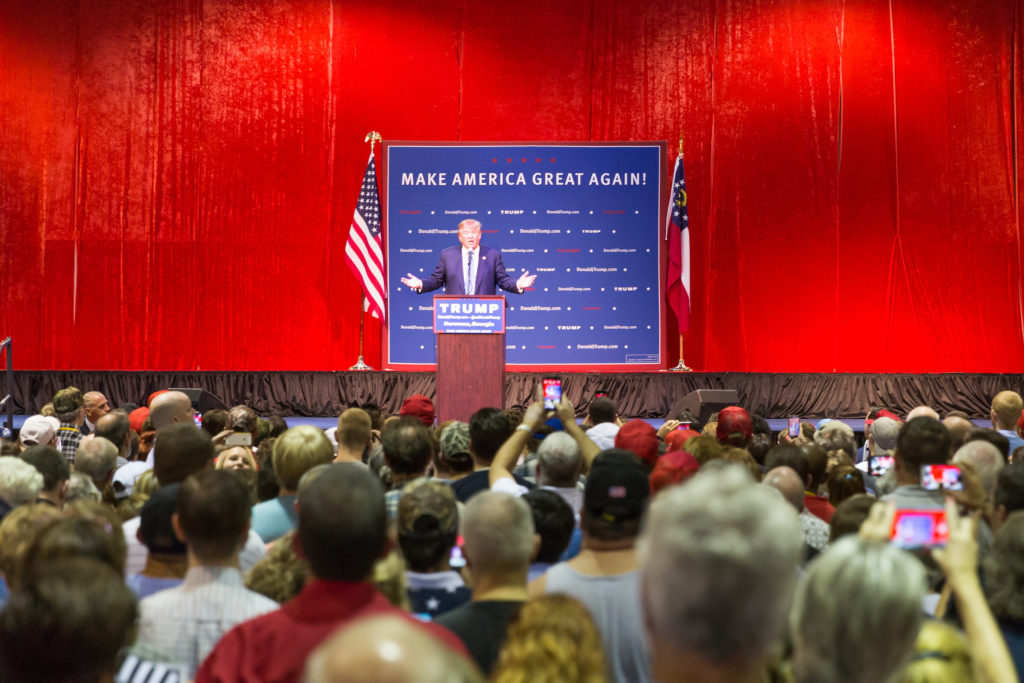The Perils of Re-Electing Donald Trump: A Critical Examination of Potential Impacts on American Democracy and Global Standing.
In the evolving landscape of American politics, the prospect of former President Donald Trump’s re-election stirs a maelstrom of concerns. This article aims to dissect the multifaceted implications of such a political decision, focusing on its potential impacts on the pillars of democracy, international relations, and the socio-economic fabric of the United States.

The Erosion of Democratic Norms
The tenure of Donald Trump as the 45th President of the United States was marked by a series of actions and rhetoric that many critics argue undermined the foundational principles of American democracy. His presidency raised alarm over the erosion of democratic norms, a concern that becomes even more pressing with the possibility of his re-election. One of the critical areas of concern is the undermining of public trust in democratic institutions. Trump’s frequent clashes with the judiciary, attempts to delegitimize the press, and unsubstantiated claims of electoral fraud have the potential to weaken the public’s faith in these vital democratic structures.
The precedent set by these actions could pave the way for a more profound erosion of democratic norms. A re-election could be perceived as an endorsement of these tactics, potentially encouraging future administrations to adopt similar approaches, further destabilizing the democratic framework that has been the cornerstone of American governance.
Impact on International Relations and Global Image
Another aspect that warrants attention is the potential impact on international relations. Trump’s foreign policy approach, often described as isolationist and transactional, diverged significantly from traditional American foreign policy. His approach to international agreements, like the withdrawal from the Paris Climate Agreement and the Iran Nuclear Deal, along with his often contentious relationships with traditional allies, shifted the global perception of the United States. The re-election of Trump could further strain these relationships, potentially leading to a more isolated America on the global stage.
Moreover, Trump’s approach to international trade and his tariff penchant could ignite trade wars, impacting the global economy and America’s economic relationships. Such policies might affect global markets and lead to retaliatory measures against American goods, impacting domestic industries and consumers.
Domestic Policy and Social Cohesion
Trump’s presidency was mainly characterized by policies and rhetoric that many viewed as divisive. His stance on immigration, law enforcement, and race relations sparked significant social and political divides. The potential for further exacerbating these divides would be a significant concern if Trump were to be re-elected. America’s strength lies in its diversity and the ability to foster unity amidst differences. A presidency that is perceived as polarizing could hinder efforts to address critical social issues and impede the progress towards a more inclusive society.
Moreover, Trump’s approach to healthcare, environmental policies, and education raises questions about the long-term implications for the well-being of Americans. His administration’s handling of the COVID-19 pandemic, characterized by some as dismissive and contradictory, provides a glimpse into the challenges that might arise in managing future national crises.
Economic Considerations
Economically, Trump’s policies have been a blend of tax cuts, deregulation, and a focus on traditional industries such as coal and manufacturing. While these policies have been credited with short-term economic gains, critics argue that they might not be sustainable in the long run. The focus on industries that are facing global declines, coupled with the neglect of emerging sectors like renewable energy, could put the American economy at a disadvantage in the rapidly evolving global market.
Furthermore, the tax cuts, predominantly favouring corporations and the wealthy, raise concerns about increasing income inequality. A continuation of these policies could exacerbate the wealth gap, leading to heightened economic disparities in the country.
Final thoughts…
The potential re-election of Donald Trump is not merely a political decision but a choice that could have far-reaching implications for the fabric of American society, its democratic institutions, and its standing on the global stage. It is a decision that requires careful consideration of the lessons learned from his previous tenure and a thorough understanding of the potential risks and repercussions. The health of American democracy, its societal cohesion, and its future economic prosperity might well hinge on this pivotal decision. As the United States stands at this crossroads, the electorate must weigh these considerations with the utmost seriousness, recognizing their choice’s profound impact on the country’s direction and its role in the world.





